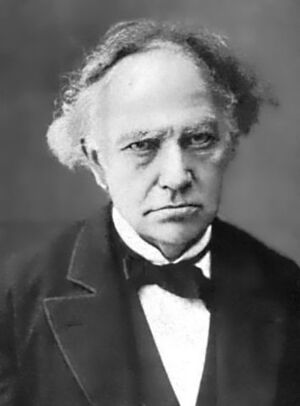Charles Hermite (nonfiction): Difference between revisions
(Created page with "thumb|Charles Hermite.'''Prof Charles Hermite''' FRS FRSE MIAS (December 24, 1822 – January 14, 1901) was a French Mathematician (n...") |
No edit summary |
||
| Line 3: | Line 3: | ||
Hermite polynomials, Hermite interpolation, Hermite normal form, Hermitian operators, and cubic Hermite splines are named in his honor. | Hermite polynomials, Hermite interpolation, Hermite normal form, Hermitian operators, and cubic Hermite splines are named in his honor. | ||
One of his students was [[Henri Poincaré (nonfiction) | One of his students was [[Henri Poincaré (nonfiction)|Henri Poincaré]]. | ||
He was the first to prove that e, the base of natural logarithms, is a transcendental number. His methods were later used by Ferdinand von Lindemann to prove that π is transcendental. | He was the first to prove that e, the base of natural logarithms, is a transcendental number. His methods were later used by Ferdinand von Lindemann to prove that π is transcendental. | ||
Revision as of 21:13, 21 December 2016
Prof Charles Hermite FRS FRSE MIAS (December 24, 1822 – January 14, 1901) was a French mathematician who did research on number theory, quadratic forms, invariant theory, orthogonal polynomials, elliptic functions, and algebra.
Hermite polynomials, Hermite interpolation, Hermite normal form, Hermitian operators, and cubic Hermite splines are named in his honor.
One of his students was Henri Poincaré.
He was the first to prove that e, the base of natural logarithms, is a transcendental number. His methods were later used by Ferdinand von Lindemann to prove that π is transcendental.
In a letter to Thomas Joannes Stieltjes in 1893, Hermite remarked:
I turn with terror and horror from this lamentable scourge of continuous functions with no derivatives.
In the News
Fiction cross-reference
Nonfiction cross-reference
External links:
- Charles Hermite @ Wikipedia
